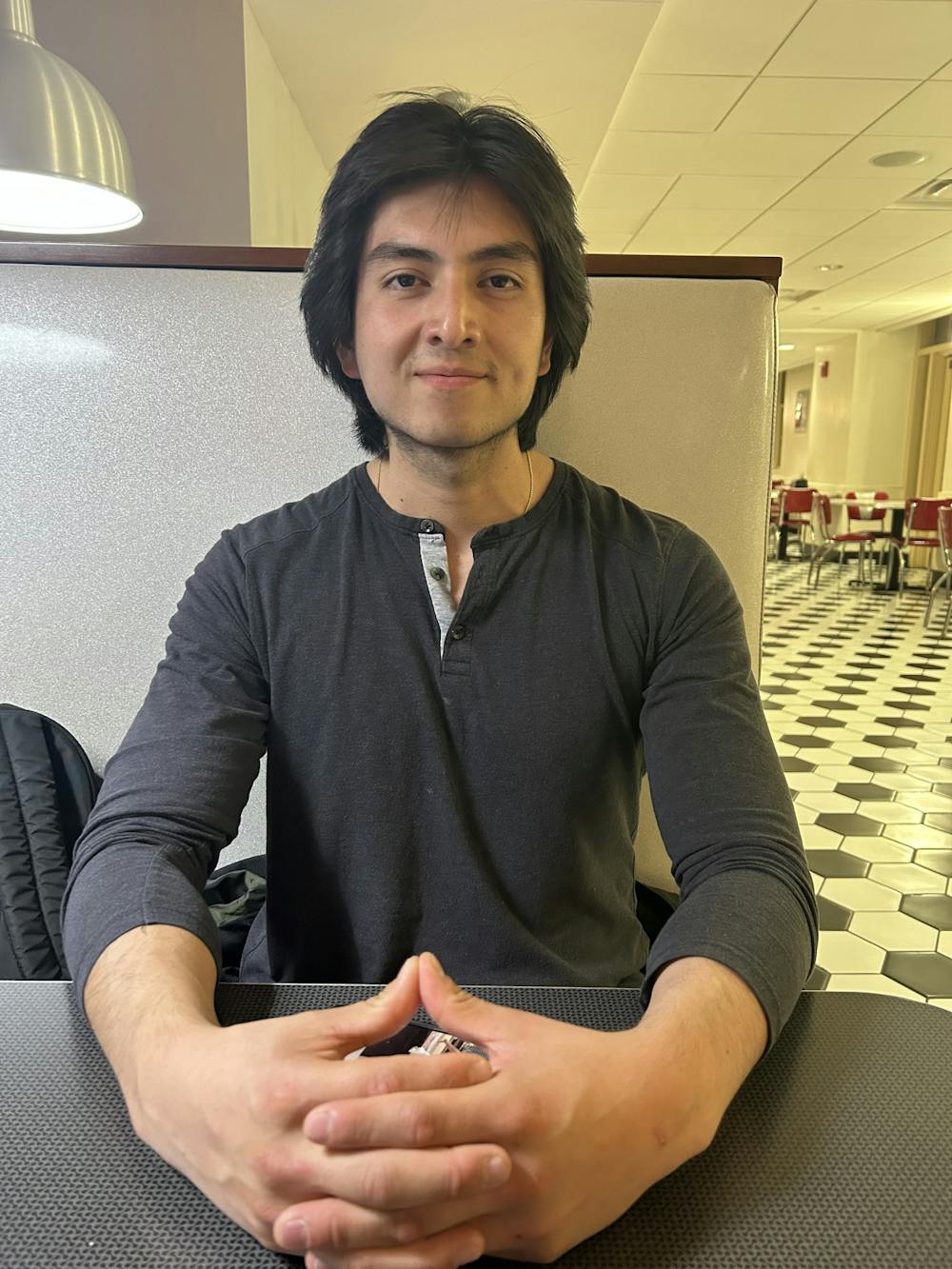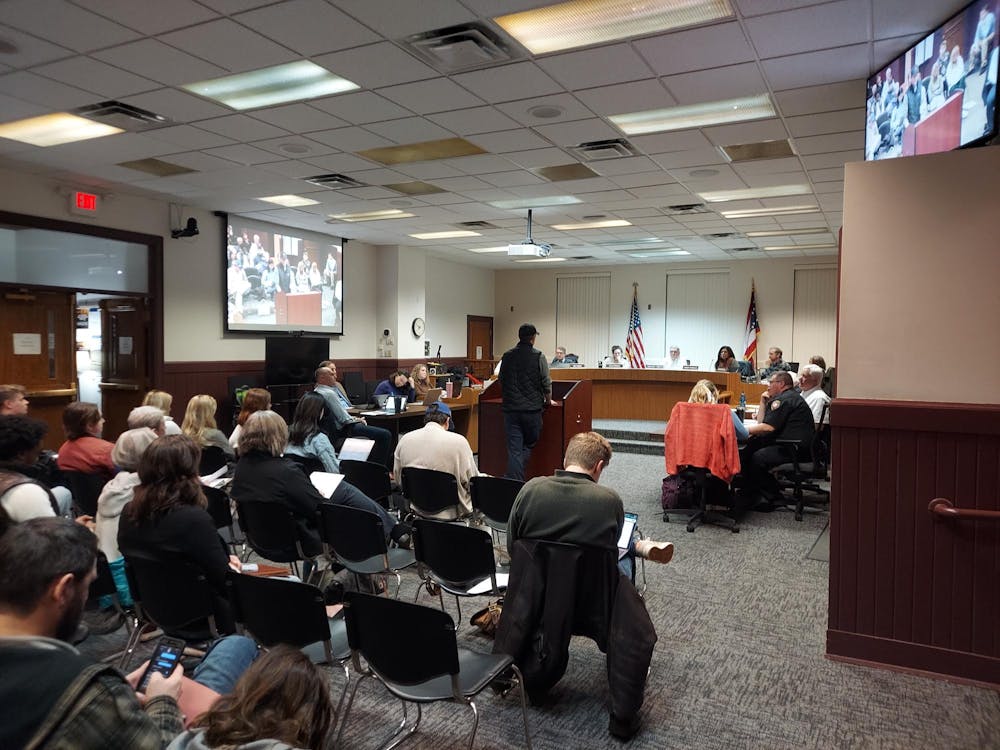Making the leap from living at home to a college dormitory is a major life change. In addition to learning how to make new friends and balance classes, many students are living away from home for the first time. Many have to adjust to a new town or city, and some have to go to a different state altogether.
For other students, going to college may also be their first time living in the U.S.
Despite a national decline in international student enrollment, they have been an essential part of Miami University’s student population. Students come from all around the world to attend Miami, which can bring benefits as well as challenges. Some students have had the opportunity to reflect on the U.S. and experience its culture — both the good parts and not-so-good parts.
Jacky Linden
Jacky Linden is a senior history and diplomacy & global politics double-major who grew up in Luxembourg. She said that the U.S. in general is held in high regard by Europeans.
“Of course, many Europeans grow up fascinated by American culture,” Linden said. “All of the movies we watch come from Hollywood. We remember that you guys liberated us in World War II … so we kind of put you guys on a pedestal.”
After rigorous research that narrowed down her options to three colleges in America, Linden picked Miami because of its connections with Luxembourg and a scholarship she received from the university. She initially had some difficulties fitting in, but eventually found a community on campus that she resonated with.
“I did struggle in the beginning a little bit because the typical Miami student that is in Greek life and goes out a lot and has a lot of money … that’s not me,” Linden said. “I didn’t feel like I could really make great friends with those people … But [through being an Arabic minor] I’ve found such a welcoming, beautiful community now, and I’m very happy about it.”
Although she feels her Luxembourgish identity supersedes her American one, Linden said that the diversity in the U.S. is much more respected than it is in Europe, where immigrants and people of color are often discriminated against.
“I think diverse and minority populations here are aware of their oppression, and speak up against it constantly, very loudly,” Linden said. “I grew up with very racist things in Luxembourg … We have to get off of our high horse and stop pointing at America all the time for being racist because we have a lot of work to do.”
However, she expressed some concern about the stances of some Americans on these diverse groups.
“[The reactionary forces in America] are very scary to me, not only because of who I am, you know, but because of who my friends are,” Linden said. “My friends are gay. My friends are transgender. My friends are Black and my friends are Brown, and it's very scary to see what some of these politicians are saying.”
Enjoy what you're reading?
Signup for our newsletter
Juan Moya
Juan Moya is a junior mechanical engineering major at Miami. Before enrolling at the university, he had only ever visited the U.S. as a tourist from his native country of Ecuador. He said the biggest difference between Ecuador and the U.S. is the reliance on cars.
“[In America] having a car is a need. In Ecuador, you could probably use public transportation and you’d be fine,” Moya said. “Even for an internship I applied to last summer, they had to reject me because logistically I couldn’t get there without a car.”
Moya, who got an internship this past summer after applying to more than 100, said that finding internships and employment opportunities in the U.S. was an additional challenge.
“As an international student, it’s actually pretty hard to get an internship where you want to get a job,” Moya said. “Right now, I’m on a visa sponsored by Miami. But later on, if these companies want to hire me, they will have to do all the paperwork and go through the process, so I have a [work visa] unless I marry someone or something.”
Moya said that he’s glad to get an engineering education in the U.S. because it’s more hands-on than programs in Ecuador. However, he said there were some issues unique to international students at Miami. He wasn’t able to transfer his high school credits until this summer because of the difference between Ecuador’s education system and the education system in the U.S., and he can’t apply to scholarships with citizenship requirements.
Despite these challenges, Moya said he was glad to end up in an area like Oxford. In addition to finding friends and his girlfriend at Miami, he appreciates midwestern weather.
“In my city, it’s in the 60s all year, so we basically don’t have seasons,” Moya said. “Oxford’s weather is actually pretty nice.”
Eiko Ishiyama
Eiko Ishiyama, a senior media and communications major, came to Miami as part of a dual degree program from Kansai Gaidai University in Osaka, Japan. She said the biggest difference she noticed between Japan and the U.S. is how often people smile.
“In America, I think most people are really friendly compared to Japan,” Ishiyama said. “When you make eye contact with Americans on the street, they just smile at you. In Japan, we don’t smile at all, even if we make eye contact.”
Similarly to Moya, America’s lack of public transportation was very apparent to Ishiyama.
“The transportation system in Japan is really, really good. We can go anywhere by a train or a bus,” Ishiyama said. “But in America, if you don’t have a car, you can’t go anywhere. Some people even make friends just because they want to use [their friend’s] car!”
Ishiyama said besides going to an international student Thanksgiving event last year, she doesn’t really participate in any American holidays. In fact, she said that her national identity is even more pronounced on Miami’s campus.
“I feel like my identity as a Japanese [person] is getting stronger because there are a lot of white people here … When it comes to Japanese people, I only know four, including me,” Ishiyama said. “I’m also in the Japanese Culture and Language Club (JCLC), and since I introduce Japanese culture to a lot of Americans there, it makes me feel more like I’m Japanese.”
For Ishiyama, studying abroad in America comes with distinct benefits and disadvantages, especially as she prepares for the workforce after graduation.
“Honestly, I really like people here and then I really like the nature [in the United States] so I want to stay here,” Ishiyama said. “The problem is it's just really difficult for international students to get a job here.”




